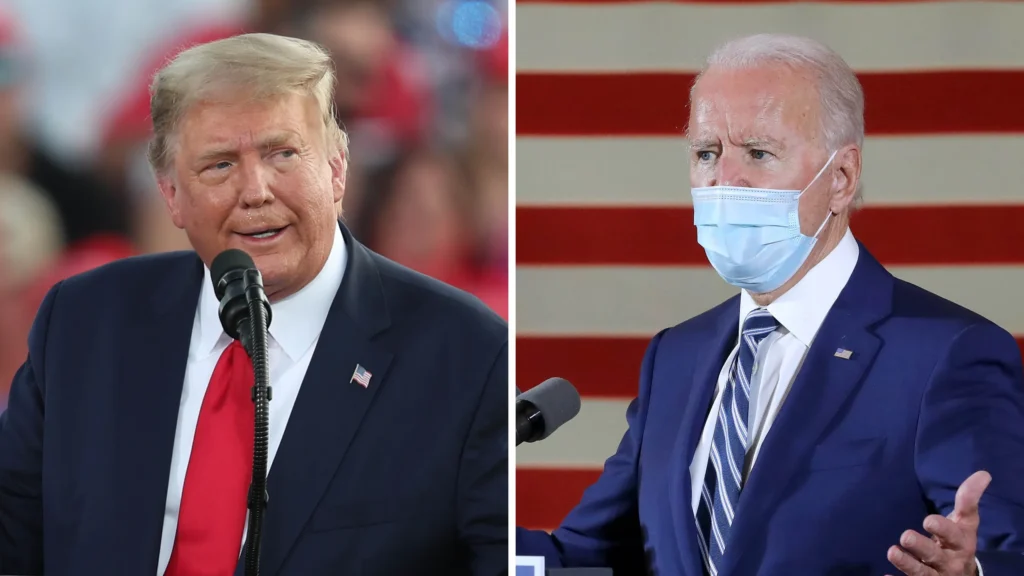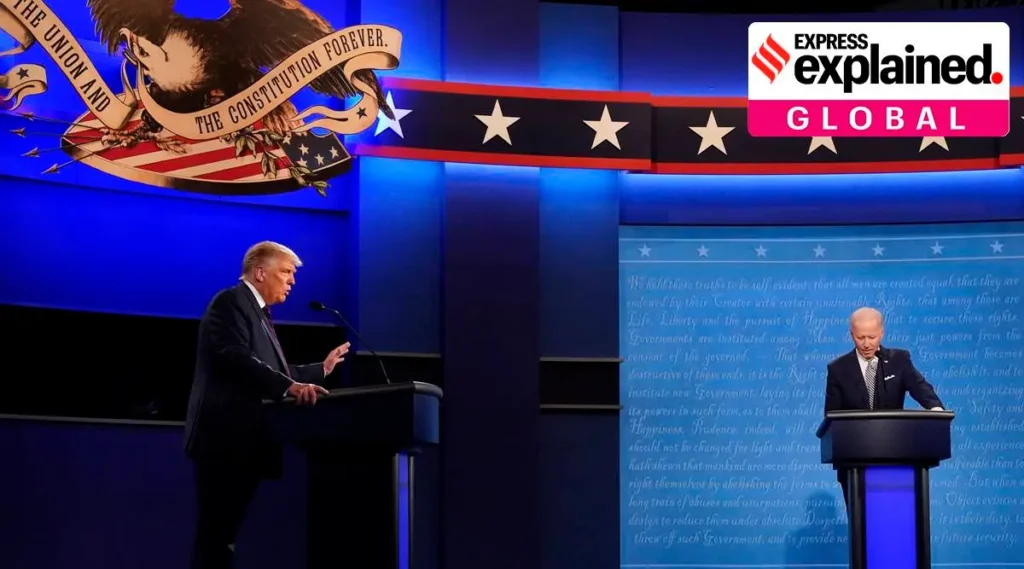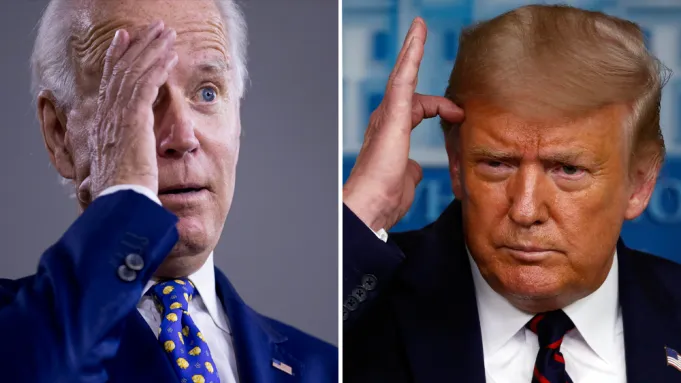The Role of Debates in Shaping Voter Opinions
Presidential debates hold significant importance in the US election process. They serve as a critical platform for candidates to present their policies, challenge their opponents, and connect with voters. Debates provide an unfiltered view of the candidates, allowing voters to assess their performance, demeanor, and ability to handle pressure. These events are particularly influential for undecided voters who seek clarity on key issues and candidate stances before making their decision. presidential election
During debates, candidates have the opportunity to directly address their opponents’ criticisms and highlight their own strengths. This direct interaction can reveal the candidates’ depth of knowledge and ability to think on their feet. For many voters, seeing how a candidate performs under the pressure of a live debate can be a decisive factor. The debates also highlight the candidates’ communication skills, which are crucial for a president who must convey policies and rally support both domestically and internationally.
Moreover, debates often focus on key issues that dominate the election cycle. Topics such as healthcare, the economy, national security, and social justice are debated, providing voters with a clearer understanding of each candidate’s priorities and solutions. These discussions help voters compare and contrast the candidates’ platforms, aiding in making an informed choice. The importance of debates in shaping voter opinions cannot be overstated, as they play a pivotal role in the democratic process.
Media Coverage and Public Perception presidential election
The media’s role in presidential debates is crucial, as it shapes public perception and influences the broader narrative of the election. Extensive media coverage ensures that debates reach a wide audience, including those who may not watch the events live. News outlets analyze and interpret debate performances, highlighting key moments, successes, and gaffes. This coverage can significantly impact how voters perceive the candidates and their policies.
Post-debate analysis often focuses on who “won” the debate, with pundits and commentators offering their opinions and insights. These assessments can shape public opinion, as viewers may be influenced by the media’s interpretation of the candidates’ performances. Additionally, social media plays an increasingly important role, with real-time reactions and commentary influencing public perception. Memorable debate moments often go viral, reaching even those who did not watch the debate, further amplifying their impact.
Media coverage also includes fact-checking, which is vital for holding candidates accountable for their statements. Fact-checkers scrutinize the candidates’ claims, providing voters with accurate information and helping them discern truth from misinformation. This process is essential for maintaining the integrity of the electoral process and ensuring that voters have access to reliable information. The interplay between debates and media coverage thus plays a critical role in shaping public perception and informing the electorate.

Historical Impact of Presidential Debates presidential election
Historical examples demonstrate the profound impact debates can have on presidential elections. The 1960 debate between John F. Kennedy and Richard Nixon is often cited as a turning point in modern political campaigns. Kennedy’s confident and composed demeanor contrasted sharply with Nixon’s tired and uneasy appearance, significantly influencing public perception. This debate highlighted the importance of television and visual presentation in political campaigns, setting a precedent for future debates.
Another notable example is the 1980 debate between Ronald Reagan and Jimmy Carter. Reagan’s memorable line, “There you go again,” effectively disarmed Carter’s attacks and showcased Reagan’s charm and wit. This debate is credited with helping Reagan secure a decisive victory in the election. These historical instances illustrate how debates can shape the narrative of a campaign and alter its trajectory, often in unexpected ways.
More recent debates have also played crucial roles. The 2016 debates between Donald Trump and Hillary Clinton were marked by intense exchanges and highlighted deep political divisions. Trump’s unorthodox debate style and Clinton’s detailed policy knowledge provided stark contrasts for voters. The debates reinforced existing voter preferences and highlighted the candidates’ differing approaches to leadership. These examples underscore the enduring significance of debates in influencing election outcomes.
The Influence on Campaign Strategies
Debates significantly influence campaign strategies, prompting candidates to refine their messages and address weaknesses. Leading up to debates, campaigns invest considerable resources in preparation, including mock debates, policy briefings, and media training. Candidates work to anticipate their opponents’ attacks and develop effective counterarguments. This preparation is crucial for delivering a strong performance and swaying undecided voters.
Debate performances can alter the momentum of a campaign. A strong showing can generate positive media coverage, boost fundraising efforts, and increase voter enthusiasm. Conversely, a poor performance can lead to negative headlines, decreased support, and internal campaign reassessments. Candidates and their teams closely monitor debate outcomes to adjust their strategies and messaging accordingly. This dynamic nature of campaigns highlights the strategic importance of debates in shaping the election landscape.
Furthermore, debates provide an opportunity for candidates to address controversies and clarify their positions. Candidates can use the platform to directly communicate with voters, bypassing media filters. This direct engagement is valuable for addressing misconceptions and reinforcing key campaign themes. By effectively utilizing debates, candidates can strengthen their electoral prospects and better connect with the electorate. The influence of debates on campaign strategies underscores their integral role in the election process.
Debates as a Reflection of Democratic Values presidential election
Presidential debates are a cornerstone of democratic elections, reflecting the principles of transparency, accountability, and informed decision-making. They provide a platform for open discourse, where candidates can present their visions and policies to the public. This transparency is essential for a healthy democracy, ensuring that voters have access to information and can make educated choices. Debates embody the democratic process, promoting civic engagement and political awareness.
The accountability aspect of debates is equally important. By participating in debates, candidates are held accountable for their past actions, policies, and statements. Opponents and moderators can question candidates on critical issues, forcing them to defend their positions. This scrutiny is vital for ensuring that candidates are truthful and responsible in their campaigns. Debates serve as a check on political power, reinforcing the importance of integrity and honesty in leadership.
Furthermore, debates encourage voter participation and engagement. They stimulate public interest in the election, prompting discussions and debates among citizens. This civic engagement is crucial for a vibrant democracy, fostering an informed and active electorate. By highlighting key issues and candidate differences, debates help voters understand the stakes of the election and the potential impact of their choices. The role of debates in promoting democratic values underscores their importance in the electoral process.

Challenges and Future of Presidential Debates
Despite their significance, presidential debates face several challenges. One major issue is the format and structure of debates, which can sometimes limit meaningful discourse. Strict time limits and rigid formats can prevent candidates from fully articulating their policies and engaging in substantive discussions. Additionally, the role of moderators is crucial, as biased or ineffective moderation can skew the debate and influence public perception. Ensuring fair and effective moderation is essential for maintaining the integrity of debates.
Another challenge is the evolving media landscape. With the rise of social media and digital platforms, debates are no longer confined to traditional television broadcasts. Real-time reactions, fact-checking, and commentary on social media can amplify certain moments and influence public perception. While this democratizes the information flow, it also introduces the risk of misinformation and superficial judgments. Balancing the benefits and drawbacks of digital media is crucial for the future of debates. presidential election
Innovations in debate formats,
Looking ahead, the future of presidential debates will likely involve adaptations to address these challenges. Innovations in debate formats, such as town hall meetings and virtual debates, can enhance voter engagement and allow for more in-depth discussions. Additionally, leveraging technology to fact-check in real-time and provide additional context can improve the quality of information available to voters. Ensuring that debates remain relevant and impactful in the digital age is essential for preserving their role in the democratic process.
In conclusion, presidential debates are a vital component of the US electoral process, shaping voter opinions, media narratives, and campaign strategies. They reflect democratic values and promote civic engagement, despite facing challenges in the evolving media landscape. The continued adaptation and innovation of debate formats will be crucial for maintaining their significance and ensuring that voters have access to transparent, accountable, and informed political discourse. presidential election
Inspired by France24News Rear More Articles Here, Read Previous Blog Here.
